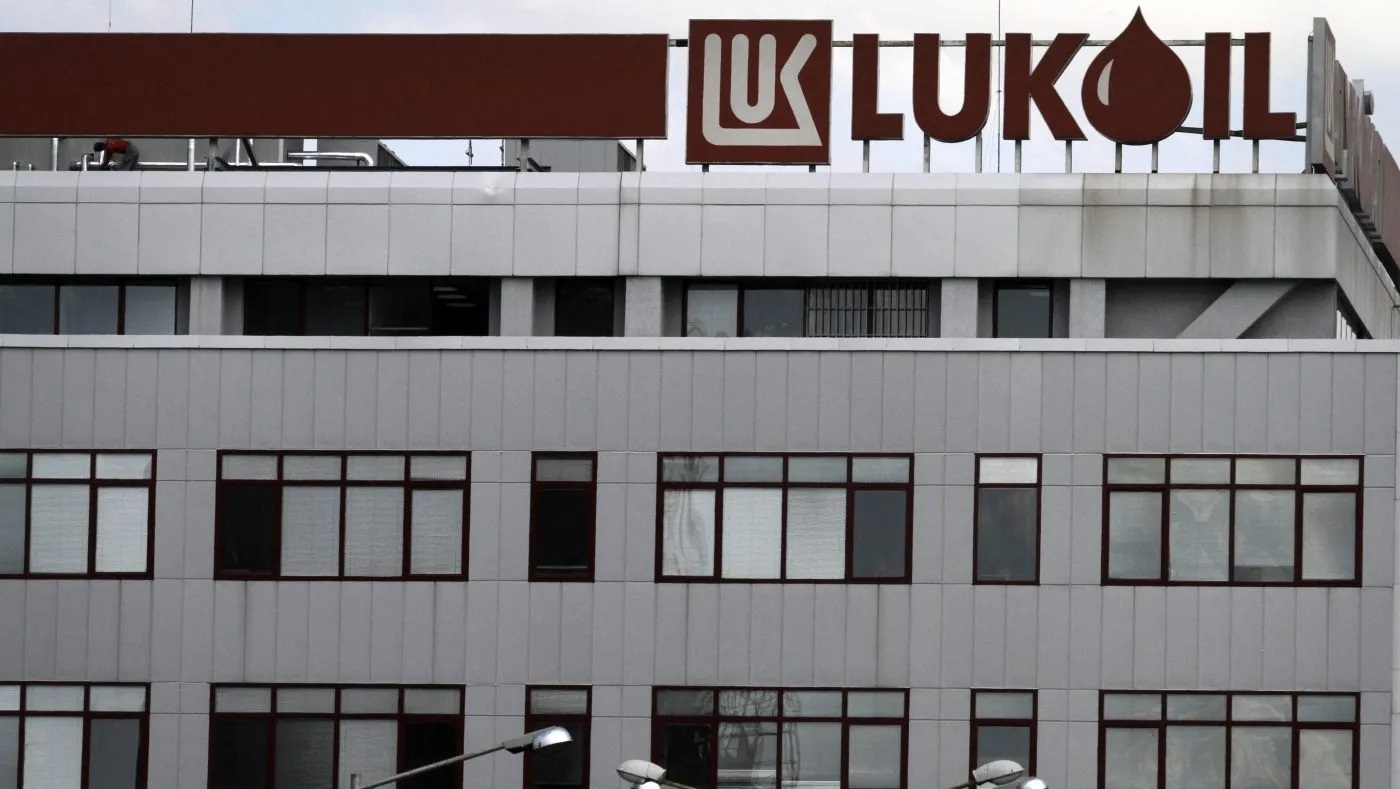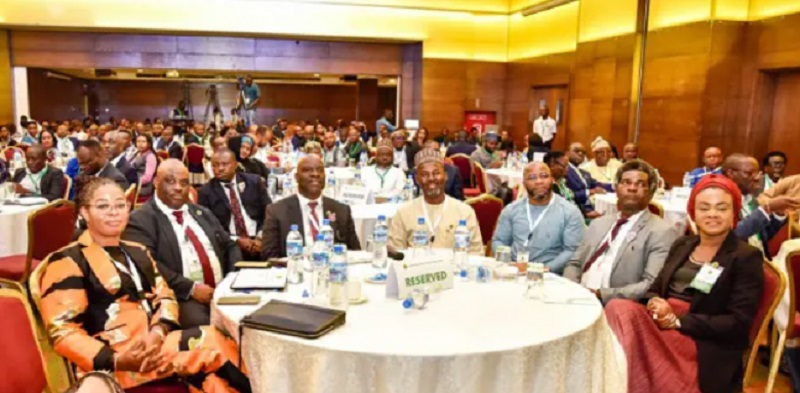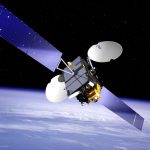Economy
The Role of Forex Robots in Enhancing Automated Trading for Nigerian Investors

The Forex market, being the largest and most liquid financial market in the world, offers immense profit potential. However, navigating this market successfully requires extensive knowledge, skill, and time. This is where Forex robots come in. These automated trading tools are becoming popular among Nigerian investors as they streamline trading processes, eliminate emotional biases, and maximize profit potential. In this article, we’ll explore the role of Forex robots in enhancing automated trading for Nigerian investors and how they can help traders optimize their strategies in a fast-paced environment.
How does a Forex robot really work?
A Forex trading robot operates based on a set of predefined rules and trading strategies. These strategies are typically designed to capitalize on short-term market movements by entering and exiting trades quickly. The robot continuously scans the market for favorable conditions and executes trades in real-time when specific criteria are met.
For example, a trading robot may be programmed to buy a currency pair when its price exceeds a certain moving average and sell it when the price dips below another threshold. This automated approach removes emotional decision-making and allows traders to rely purely on data-driven insights.
Key Benefits of Using Forex Robots for Nigerian Investors
For Nigerian investors looking to engage in Forex trading, trading robots offer several key advantages that can enhance profitability and reduce the time commitment required for manual trading.
1. Automation of Trading Processes
One of the most significant benefits of using a Forex robot is the automation of trading processes. Nigerian investors can automate their trading strategies, allowing the robot to manage trades around the clock. This is especially valuable in the Forex market, which operates 24 hours a day, five days a week. With a trading robot, investors can ensure that they never miss a profitable opportunity, even if they are not actively monitoring the market.
2. Elimination of Emotional Bias
Human emotions, such as fear and greed, can often cloud judgment and lead to impulsive trading decisions. Forex trading robots operate purely on logic and data, eliminating emotional biases from the trading process. This consistency helps Nigerian investors stick to their trading plan, reducing the likelihood of costly mistakes caused by emotional reactions to market fluctuations.
3. Increased Efficiency at all times
In the fast-moving Forex market, timing is critical. Forex robots are capable of executing trades with lightning speed, often in milliseconds, which is impossible for human traders to replicate. This increased efficiency can result in better entry and exit points, potentially maximizing profits and minimizing losses.
4. Backtesting and Strategy Optimization
Most Forex robots come with backtesting capabilities, allowing traders to test their strategies using historical market data. This feature is particularly beneficial for Nigerian investors, as it enables them to evaluate the performance of their trading strategies before risking real money. By optimizing their strategies through backtesting, traders can improve their chances of success in live market conditions.
How Can Nigerian Investors Benefit from Forex Robots?
Nigerian investors can leverage Forex robots to enhance their trading experience in several ways. First, they can start by choosing a reputable robot that aligns with their trading goals and risk tolerance. It’s essential to select a robot that offers a high degree of customization, allowing traders to set parameters that suit their strategies.
Secondly, investors should continuously monitor the robot’s performance and make adjustments as necessary. While Forex robots are automated, market conditions can change rapidly, and strategies that worked well in the past may need to be fine-tuned to adapt to new market environments.
Last but not least, Nigerian investors should consider diversifying their trading strategies by using multiple robots or combining different trading styles. This approach can help reduce risk and ensure more consistent returns over the long term.
To sum up this whole article, we can say for sure that Forex robots have become an indispensable tool for Nigerian investors looking to engage in automated trading. It is important to know how to use them the proper way and you can profit accordingly.
Economy
Russia’s Lukoil Agrees to Sell International Assets in Nigeria, Others to Carlyle

By Adedapo Adesanya
US sanctioned Russian oil giant Lukoil, will sell its foreign assets, including those in Nigeria and five other countries, to the US investment firm, The Carlyle Group.
According to an announcement on Thursday, Lukoil reached an agreement with the US investment firm on the sale of Lukoil International GmbH, the holding company that owns the group’s non-Russian international assets.
These foreign assets include shares in oil fields and refineries across the globe, including in Iraq, Azerbaijan, Egypt, the United Arab Emirates (UAE), Nigeria, and Mexico.
The sale follows the US sanctions on Lukoil and Rosneft, “as a result of Russia’s lack of serious commitment to a peace process to end the war in Ukraine.”
The Donald Trump administration in October 2025 had carried out the decision to put pressure on Russia’s state finances, adding the country’s two largest oil producers, Lukoil and Rosneft, to its blacklist of sanctioned entities. The US had initially given the oil firm one month to sell the holdings before gradually extending it as negotiations dragged on.
Lukoil had announced that same month that it would sell all of its international assets, initiating a formal process to receive bids from potential buyers.
After months of negotiations with potential buyers and one preliminary agreement with Gunvor blocked by the US Treasury, which described the trading group as “the Kremlin’s puppet”, it has now signed an agreement to sell Lukoil International GmbH to Carlyle.
Companies working with the sanctioned firms risk secondary sanctions that would deny them access to US banks, traders, transporters, and insurers.
The agreement is not exclusive and is subject to conditions such as the procurement of necessary regulatory approvals, including permission from the US Department of the Treasury’s Office of Foreign Assets Control (OFAC) for the transaction with Carlyle.
Carlyle said that the agreement “has been structured to be fully compliant” with US Treasury policies and that it was “conditional upon Carlyle’s due diligence and regulatory approvals”.
Prior to the Carlyle news, other US oil and gas supermajors Chevron and ExxonMobil, and International Holding Company (IHC) of Abu Dhabi expressed interest to the US Treasury to potentially acquire Lukoil’s international assets.
The sale would further dent Russian economy which has been struggling because of its war in Ukraine and Western sanctions have increased inflation and slowed economic growth. In 2025, the country’s oil and gas revenues, which make up about a quarter of government income and help fund the war, fell to their lowest level in five years.
Economy
Eyesan Assures Investors of Transparency, Merit in Oil Licensing Bid

By Adedapo Adesanya
The chief executive of the Nigerian Upstream Petroleum Regulatory Commission (NUPRC), Mrs Oritsemeyiwa Eyesan, has assured investors of a transparent, merit-based and competitive process for Nigeria’s 2025 oil and gas licensing round.
Mrs Eyesan, gave the assurance on Wednesday while speaking at a Pre-Bid Webinar organised by the commission, noting that only applicants with strong technical, financial credentials, professionalism and credible plans would proceed to the critical stage of the bidding process.
The NUPRC in December 1, 2025 inaugurated Nigeria’s 2025 Licensing Bid Round, offering 50 oil and gas blocks across frontier, onshore, shallow water, and deepwater terrains for potential investors.
The basins included Niger Delta basin, with 35 blocks, Benin (Frontier) with three blocks, Anambra (Frontier), with four blocks, Benue (Frontier), with four blocks and Chad (Frontier) with four blocks on offer.
Mrs Eyesan explained that the licensing process would follow five stages: Registration and pre-qualification, data acquisition, technical bid submission, evaluation, and a commercial bid conference, with only bidders that meet strong technical and financial criteria progressing.
The NUPRC executive said the 2025 Licensing Round represented a deliberate effort by Nigeria to reposition its upstream petroleum sector for long-term investment, transparency, and value creation, amid increasing global competition for capital.
She said that energy security and supply resilience had become key global economic and geopolitical priorities, while investment capital was increasingly selective and disciplined.
“Our national priority is clear: to attract capital, grow reserves, and improve production in a responsible and sustainable manner.
“A structured and transparent licensing round is essential to achieving these objectives.
“The NUPRC is legally mandated to conduct licensing rounds in a periodic, open, transparent, and fully competitive manner and the entire 2025 process will be governed strictly by published rules,” she said.
The official further revealed that, with the approval of President Bola Tinubu, signature bonuses for the 2025 round have been set within a range designed to lower entry barriers and prioritise technical capability, credible work programmes, financial strength, and speed to production.
She emphasised that the bid process will fully comply with the Petroleum Industry Act (PIA) and remain open to public and institutional scrutiny through the Nigeria Extractive Industries Transparency Initiative (NEITI) and other oversight agencies.
Economy
Afriland Properties, Three Others Weaken NASD Exchange by 0.06%

By Adedapo Adesanya
Four price losers weakened the NASD Over-the-Counter (OTC) Securities Exchange by 0.06 per cent on Wednesday, January 28.
The decliners were led by Afriland Properties Plc, which lost N1.53 to close at N14.50 per share compared with the previous day’s N16.03 per share, Geo-Fluids Plc dropped 50 Kobo to end at N6.35 per unit versus Tuesday’s price of N6.85 per unit, Central Securities Clearing System (CSCS) Plc declined by 35 Kobo to N40.15 per share from N40.50 per share, and Food Concepts Plc decreased by 28 Kobo to sell at N2.72 per unit versus N3.00 per unit.
As a result, the market capitalisation of the bourse went down by N1.3 billion to N2.173 trillion from the N2.174 trillion it ended a day earlier, and the NASD Unlisted Security Index (NSI) fell by 2.17 points to 3,632.56 points from Tuesday’s 3,634.73 points.
In the midst of the profit-taking, some securities witnessed bargain-hunting, with Nipco Plc gaining N22.00 to close at N242.00 per share versus N220.00 per share of the previous session, FrieslandCampina Wamco Nigeria Plc improved by N4.00 to N68.00 per unit from N64.00 per unit, and Acorn Petroleum Plc added 8 Kobo to finish at N1.38 per share versus N1.30 per share.
At midweek, the volume of securities transacted by the market participants surged by 259.9 per cent to 4.7 million units from 1.3 million units, but the value of securities went down by 8.6 per cent to N52.4 million from N57.3 million and the number of deals shrank by 15.8 per cent to 32 deals from 38 deals.
CSCS Plc remained the most traded stock by value (year-to-date) with 15.3 million units exchanged for N622.4 million, followed by FrieslandCampina Wamco Nigeria Plc with 1.6 million units valued at N108.4 million, and Geo-Fluids Plc with 8.9 million units worth N60.3 million.
CSCS Plc was also the most traded stock by volume (year-to-date) with 15.3 million units sold for N622.4 million, followed by Geo-Fluids Plc with 8.9 million units exchanged for N60.3 million, and Mass Telecom Innovation Plc with 8.4 million units traded for N3.4 million.
-

 Feature/OPED6 years ago
Feature/OPED6 years agoDavos was Different this year
-
Travel/Tourism9 years ago
Lagos Seals Western Lodge Hotel In Ikorodu
-

 Showbiz3 years ago
Showbiz3 years agoEstranged Lover Releases Videos of Empress Njamah Bathing
-

 Banking8 years ago
Banking8 years agoSort Codes of GTBank Branches in Nigeria
-

 Economy3 years ago
Economy3 years agoSubsidy Removal: CNG at N130 Per Litre Cheaper Than Petrol—IPMAN
-

 Banking3 years ago
Banking3 years agoSort Codes of UBA Branches in Nigeria
-

 Banking3 years ago
Banking3 years agoFirst Bank Announces Planned Downtime
-

 Sports3 years ago
Sports3 years agoHighest Paid Nigerian Footballer – How Much Do Nigerian Footballers Earn






















